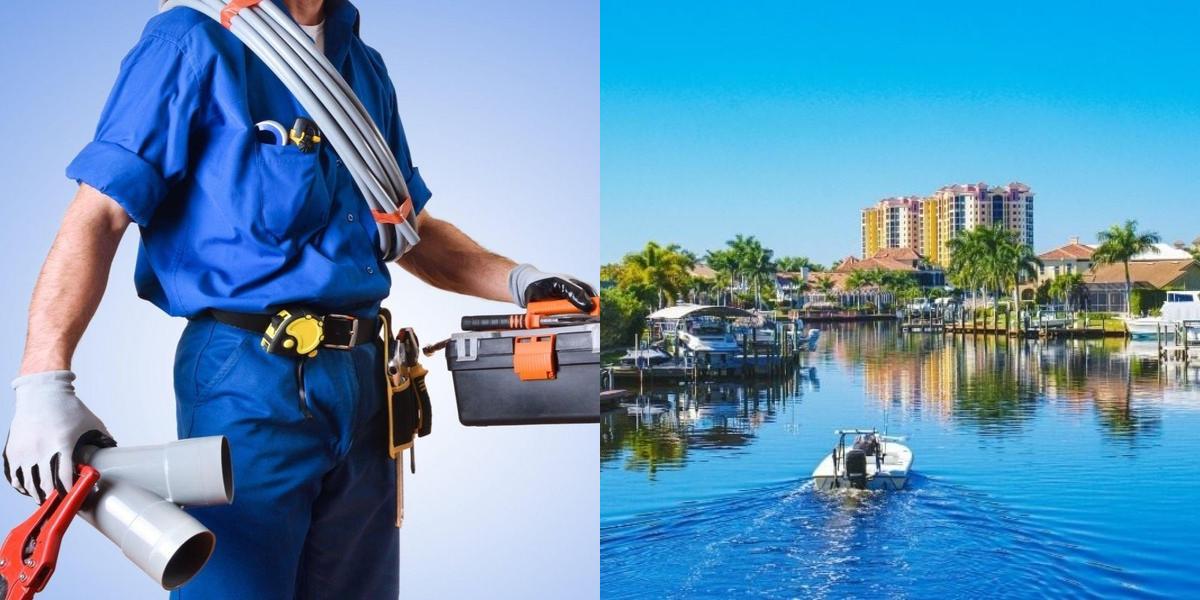How to Become a Plumber in Florida

Plumbers are skilled professionals who install, repair, and maintain plumbing systems in residential, commercial, and industrial settings. They work with pipes, fixtures, and other plumbing equipment to ensure the proper functioning of water supply, drainage, and sewage systems. If you are interested in pursuing a career as a plumber in Florida, here are some important things you need to know:
3. Network with Plumbing Professionals
Networking is an important part of finding a job in any industry, including plumbing. Attend industry events, such as trade shows and conferences, where you can meet and connect with plumbing professionals. Join professional associations and organizations, such as the Plumbing-Heating-Cooling Contractors Association (PHCC), to expand your network and access job opportunities.
4. Build a Portfolio of Work
As you gain experience in the plumbing industry, it's a good idea to build a portfolio of your work. This can include photographs or documentation of completed plumbing projects, testimonials from satisfied clients or employers, and any certifications or awards you've received. A portfolio can help you showcase your skills and experience to potential employers or clients.
5. Stay Updated with Industry Trends and Regulations
The plumbing industry is constantly evolving, with new technologies, materials, and regulations being introduced. It's important to stay updated with these changes to remain competitive in the job market. Attend continuing education courses, read industry publications, and participate in online forums or discussion groups to stay informed about the latest trends and regulations in the plumbing industry.
Career Paths and Opportunities after Becoming a Plumber
Becoming a certified plumber opens up a wide range of career paths and opportunities. Here are some potential career paths you can pursue after becoming a plumber:
1. Residential Plumber
Many plumbers choose to specialize in residential plumbing. As a residential plumber, you'll primarily work in homes, installing, repairing, and maintaining plumbing systems. This can include tasks such as fixing leaky faucets, unclogging drains, and installing new plumbing fixtures. Residential plumbers often work for plumbing companies or operate their own businesses.
2. Commercial Plumber
Commercial plumbers specialize in working on plumbing systems in commercial and industrial buildings, such as office buildings, hospitals, and factories. This can involve more complex and larger-scale projects, such as installing and maintaining plumbing systems for entire buildings. Commercial plumbers may work for construction companies, plumbing contractors, or facility management companies.
3. Industrial Plumber
Industrial plumbers work in industrial facilities, such as power plants, refineries, and manufacturing plants. They are responsible for installing, repairing, and maintaining plumbing systems that are critical to the operation of these facilities. Industrial plumbers often work for specialized plumbing contractors or are employed directly by industrial companies.
4. Construction Plumber
Construction plumbers work on plumbing systems for new construction projects, such as residential developments, commercial buildings, and infrastructure projects. They collaborate with architects, engineers, and construction workers to design and install plumbing systems that meet building codes and regulations. Construction plumbers may work for construction companies, plumbing contractors, or be self-employed.
5. Service and Repair Plumber
Service and repair plumbers specialize in diagnosing and fixing plumbing issues in existing buildings. They respond to service calls from clients, troubleshoot plumbing problems, and make necessary repairs. Service and repair plumbers may work for plumbing companies, maintenance departments, or operate their own businesses.
6. Plumbing Inspector
Plumbing inspectors are responsible for ensuring that plumbing systems meet the necessary codes, regulations, and safety standards. They inspect new construction projects, renovations, and repairs to ensure compliance. Plumbing inspectors may work for government agencies, building departments, or be self-employed.
7. Entrepreneurship
Becoming a certified plumber also opens up the opportunity to start your own plumbing business. As an entrepreneur, you'll have the freedom to set your own schedule, choose your clients, and determine your rates. Starting a plumbing business requires a combination of technical skills, business knowledge, and marketing savvy.
Final Thoughts
Becoming a certified plumber can lead to a rewarding and lucrative career. By following the steps outlined in this article, you can obtain your plumber certification and start your journey in the plumbing industry. Whether you choose to specialize in residential, commercial, industrial, or construction plumbing, there are ample career opportunities available. Stay updated with industry trends, continue learning and growing your skills, and seize the opportunities that come your way. Good luck on your journey to becoming a certified plumber!
Remember, this journey doesn't end with this article — it's just the beginning. So, if this doesn't align with your preferences, explore these other articles:

Joanna Paragas is part of the Growth team at Dreambound. Her primary role involves creating various automation to streamline workflows and make tasks more efficient for the entire team. Beyond her professional endeavors, Joanna enjoys spending her free time playing with her dogs and enhancing her knowledge by enrolling in online courses.





